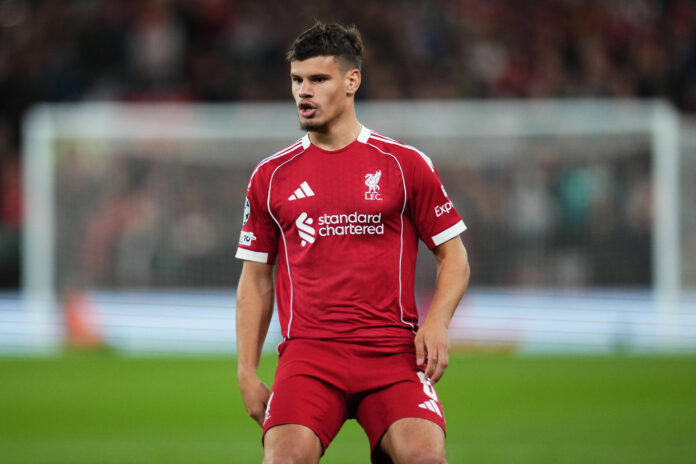Warnock Raises Concerns Over Van Dijk and Kerkez Link-Up After Manchester United Defeat
Liverpool’s defensive frailties were once again exposed at Anfield, as former Reds defender Stephen Warnock questioned the on-pitch relationship between Virgil van Dijk and Milos Kerkez during the 2–1 defeat to Manchester United. The comments came amid growing scrutiny of the team’s cohesion under Arne Slot following a fourth consecutive loss in all competitions.
Warnock’s Verdict on Defensive Communication
Speaking on BBC Radio 5 Live during the match, Warnock expressed concern over the lack of understanding between Van Dijk and Kerkez on Liverpool’s left flank. His assessment was blunt: “Kerkez and Van Dijk’s relationship on this left-hand side is not working. There’s a clear lack of communication, and the ball keeps being slipped down the channel far too easily. They’re far too open when possession turns over.”
It was a searing indictment of a partnership still in its infancy, but one that has already shown cracks. United capitalised early, taking the lead within minutes as Bryan Mbeumo surged past Van Dijk and found the net. The sequence of play encapsulated what Warnock described — an exposed left side, hesitant decision-making, and defensive uncertainty.

Kerkez Under Pressure After Difficult Start
Kerkez, a summer signing from Bournemouth, arrived with the expectation of providing energy and balance to Slot’s system. Yet, adapting to Liverpool’s defensive structure has proven a significant challenge. The young Hungarian full-back has struggled to establish the consistency required at this level, particularly alongside a central defender of Van Dijk’s stature.
The tactical demands placed on full-backs under Slot are considerable — expected to push high in attack but recover swiftly when possession is lost. Against Manchester United, this left Kerkez caught between roles. Too advanced at times and too passive in others, his positioning invited pressure and allowed space for United’s forwards to exploit.
Warnock’s comments reflect a wider concern among observers that Kerkez’s integration has not been managed effectively. While he is undoubtedly talented, the learning curve at a club like Liverpool can be unforgiving, especially when results are poor and scrutiny intensifies.
Van Dijk’s Frustration Mounts
For Van Dijk, who has often been the standard-bearer of composure and leadership in Liverpool’s back line, the sight of defensive disarray is becoming an all-too-familiar frustration. The Dutchman was visibly agitated during several phases of play, gesturing towards his team-mates and urging greater concentration.
It’s not the first time this season his body language has reflected dissatisfaction. Having taken on the captain’s armband with the departure of senior figures, Van Dijk now faces the dual burden of maintaining his own form while leading a team still adapting to a new managerial era.
His post-match demeanour suggested a player aware that standards have slipped — and that his influence alone may not be enough to restore them. Liverpool’s defensive unit, once the foundation of their success, now looks disjointed and reactive.
Slot Faces a Tactical Balancing Act
For Arne Slot, these issues underline the ongoing transition his Liverpool side is undergoing. The system remains a work in progress, particularly in defence, where balance and understanding are essential. Slot’s approach prioritises ball progression and pressing intensity, but those ideas can only flourish when defensive coordination is watertight.
Warnock’s comments will resonate with supporters who have watched their side concede early and often in recent weeks. The manager’s challenge is to find stability without sacrificing the attacking fluidity his philosophy demands. That may mean adjusting Kerkez’s positioning, providing more cover in midfield, or rotating personnel to restore confidence.
Liverpool remain capable of turning their season around, but the signs of strain are evident. The partnership between Van Dijk and Kerkez may yet develop into a reliable axis — but for now, it symbolises the uncertainty of a team still searching for its rhythm under new leadership.



